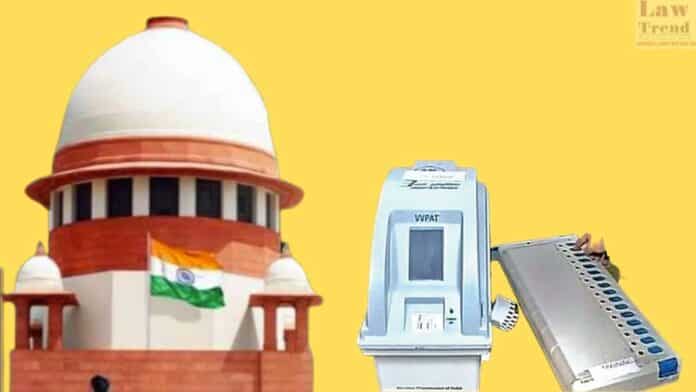The Supreme Court of India has dismissed a review petition challenging its earlier decision from April 26, which rejected calls for comprehensive cross-verification of votes cast through Electronic Voting Machines (EVMs) against the Voter Verifiable Paper Audit Trail (VVPAT). The apex court reaffirmed its stance that the EVMs are secure and dismissed concerns about potential manipulations as unfounded.
The review petition was considered in chambers by Justices Sanjiv Khanna and Dipankar Datta. In their order dated July 25, they stated, “We have carefully perused the review petition, as also the grounds in support thereof. In our opinion, no case for review of the judgment dated April 26 is made out. The review petition is, accordingly, dismissed.”
The Supreme Court’s April ruling had already underscored the security measures inherent in EVMs, stating these devices eliminate risks such as booth capturing and bogus voting, and are more reliable than the old paper ballot system. The ruling also highlighted that EVMs are user-friendly and understood well by voters, candidates, their representatives, and the officials of the Election Commission of India (ECI).
Furthermore, the court provided a mechanism for candidates who finished second and third in the polling results to request verification of microcontroller chips in five percent of EVMs per assembly constituency. This could be done upon a written request and payment of a fee to the poll panel, starting from May 1. Additionally, the court had ordered that symbol loading units (SLU) be sealed and secured alongside EVMs in a strongroom for a minimum of 45 days post-election results to further ensure transparency.
Also Read
The Supreme Court reiterated the enhancement of electoral accountability brought by the incorporation of VVPAT, which allows voters to verify that their votes are recorded correctly, thereby bolstering trust in the electoral process. The bench had emphasized, “The possibility of hacking or tampering with the agnostic firmware in the burnt memory of EVMs to tutor or favor results is unfounded.”




